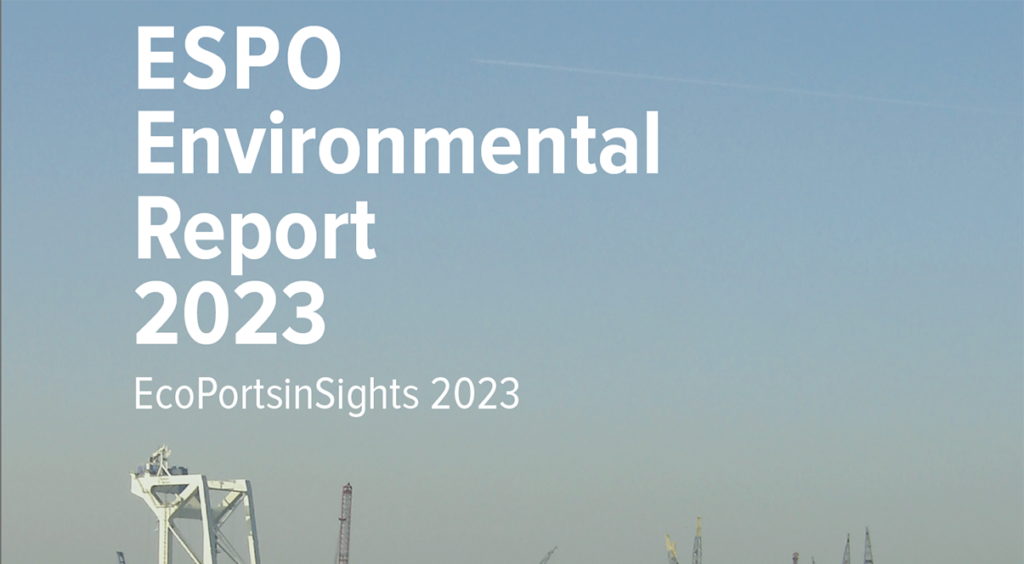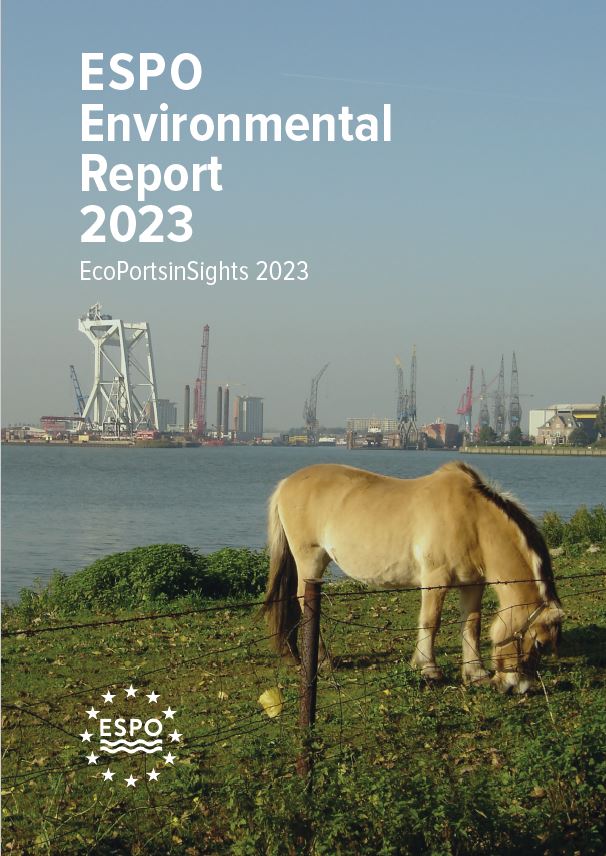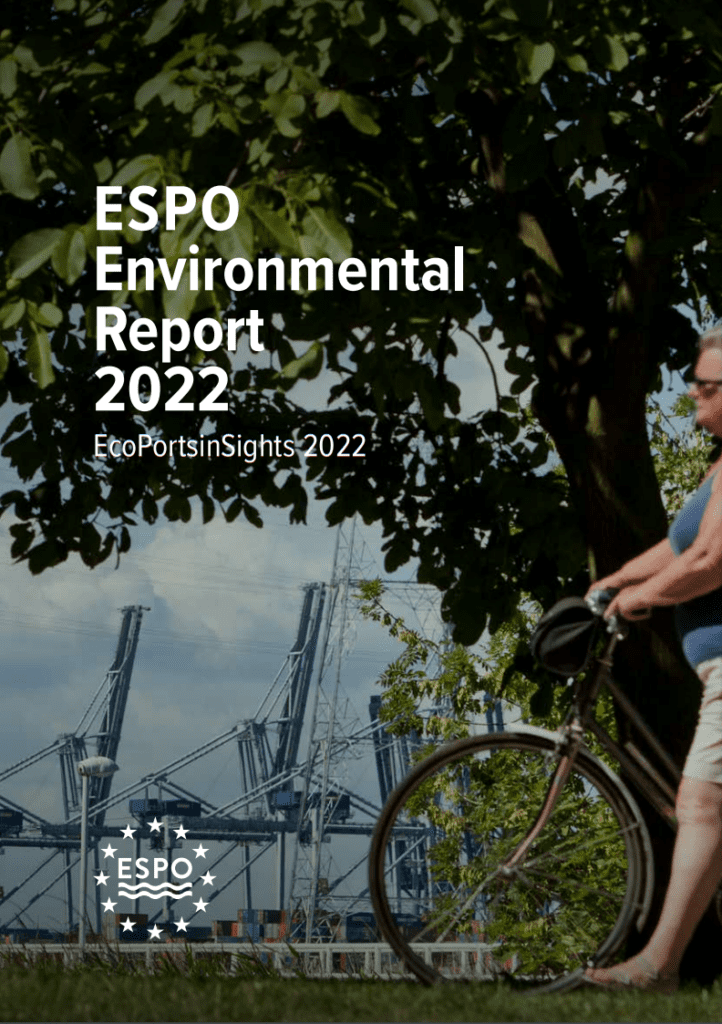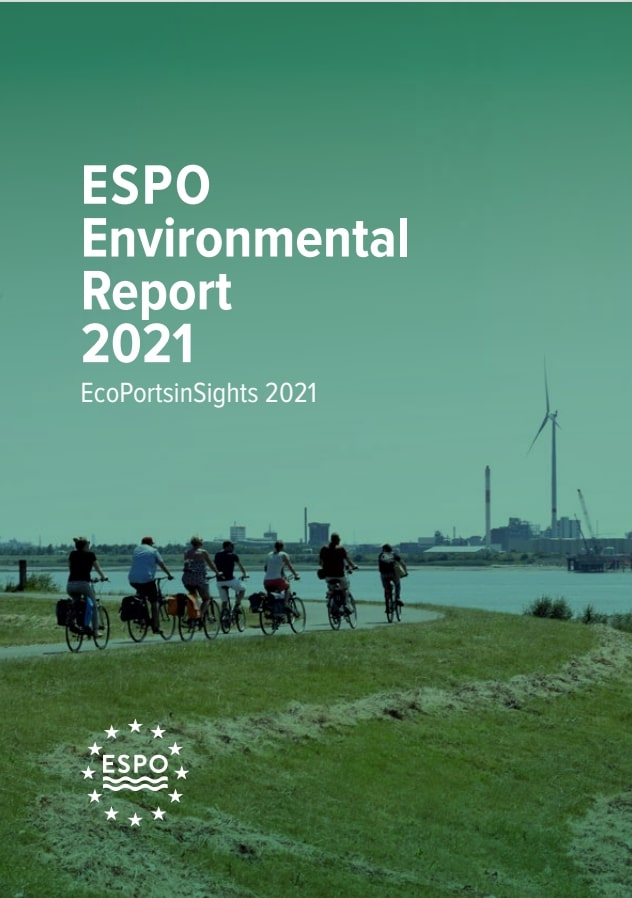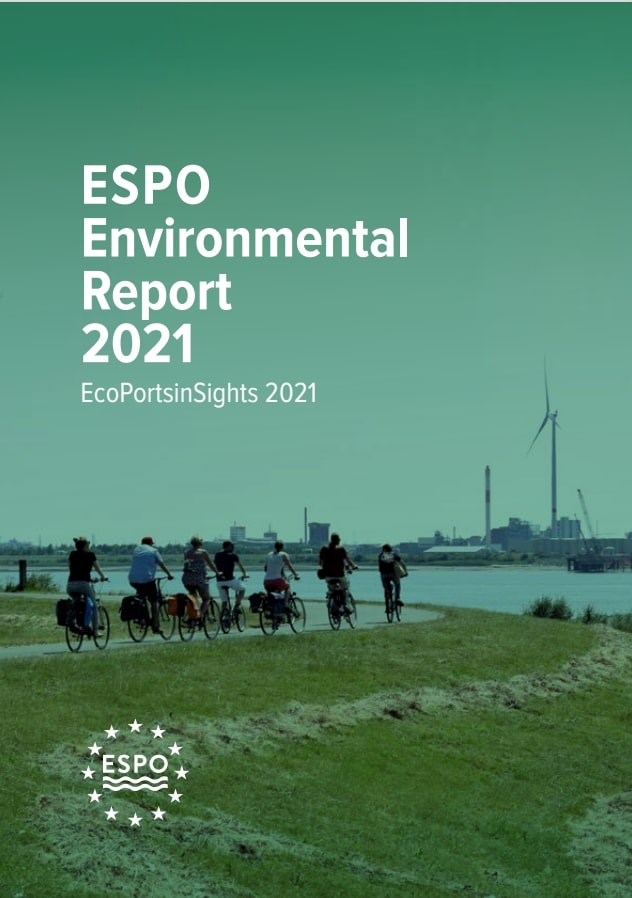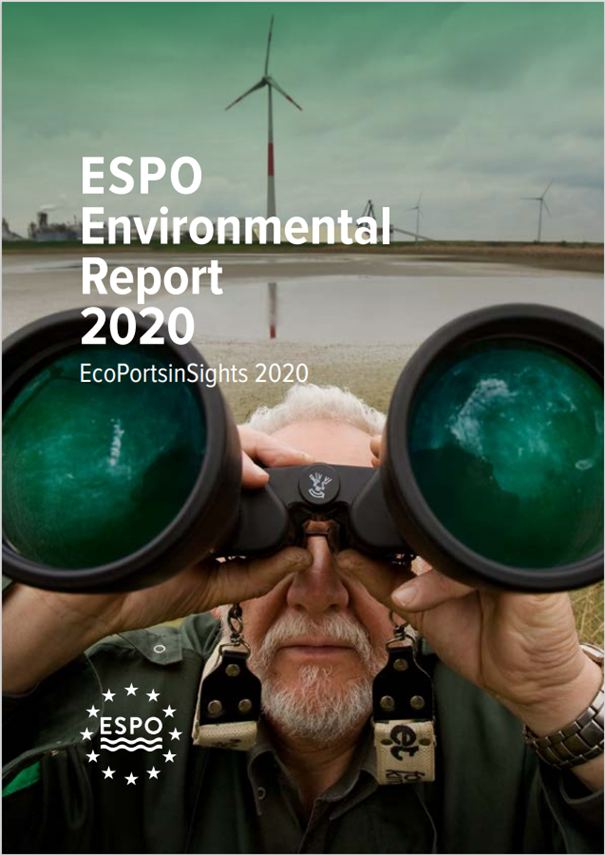Climate change again top priority for Europe’s ports in new ESPO’s Environmental Report 2023
The European Sea Ports Organisation (ESPO) has unveiled its Annual ESPO Environmental Report 2023 – EcoPortsinSights 2023, marking the eighth edition of this pivotal report. ESPO’s Environmental Report is a cornerstone of the EcoPorts initiative, designed to champion environmental sustainability in European ports. This year’s report draws upon data collected from 90 European ports in 20 countries, all of which participated in the EcoPorts Self-Diagnosis Method (SDM) (www.ecoports.com). The SDM is a free checklist of good practices that provides the database for the report.
Climate remains top environmental priority of ports
The ESPO Environmental Report 2023 highlights several encouraging trends among its key indicators. For the second consecutive year, climate change maintains its position as the foremost environmental concern for European ports, reaffirming the report’s significance as a window into the sector’s environmental performance. By shedding light on the environmental challenges faced by European ports, the report equips both ESPO and European policymakers with the insight they need to make informed decisions.
Beyond climate change, other top priorities in the sector, such as air quality and energy efficiency, continue to command attention, collectively forming the triumvirate of key environmental concerns for ports in the region.
As regards climate change indicators, it is worth noting that, although less than half of the ports experienced climate-related operational challenges, more than three quarters incorporates considerations related to climate change adaptation when planning and implementing new infrastructure projects.

Worth to mention is that water-related port development is entering the Top 10 priorities.
In 2023, the report finds that ports continue to improve their environmental management, addressing their top priorities to a greater degree than in the past.
Moreover, a growing number of ports are achieving certification under PERS, the only port-specific environmental standard developed by ports, for ports.
Despite these positive trends, some key indicators, including environmental training programs for port employees and the monitoring of terrestrial habitats, experienced slight declines compared to the previous year. ESPO will closely monitor these areas in preparation for next year’s report.
The ESPO Environmental Report is a testament to the ongoing commitment of European ports in their pursuit of environmental excellence. It also serves as a platform for these ports to communicate their dedication to essential stakeholders.
“The environmental report allows us to monitor important environmental indicators, which will prove very useful in overseeing the implementation of important ‘Fit for 55’ initiatives like AFIR. It also helps in gaining knowledge on issues such as climate resilience, a topic that is high on the Commission’s agenda. This environmental report again shows that a considerable part of the environmental efforts ports are making remain pro-active and bottom up. We hope that we can continue to expand the network, and thus further strengthen the representativity and depth of the results,” commented Isabelle Ryckbost, ESPO Secretary General.
“After 26 years of the EcoPorts Network, the 2023 Annual ESPO Environmental Report affirms that European ports continue to demonstrate unwavering commitment to environmental monitoring and management. The report emphasises the strengths we can build upon and the issues we must address in the years to come. Our mission continues to ensure that the EcoPorts Network equips ports with the indispensable tools needed to participate in Europe’s decarbonisation journey and to foster a greener future from the bottom up,” added Anaëlle Boudry, EcoPorts Coordinator.
